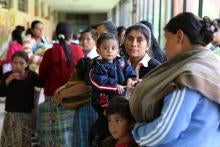Strengthening institutional capacity for equitable health research: lessons from Latin America and the Caribbean
The development of research capacity in Latin America and the Caribbean requires investment in both individuals and regional institutions.
Link to full original article in English in the BMJ: https://doi.org/10.1136/bmj.k2456















